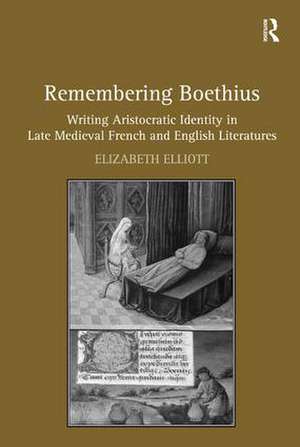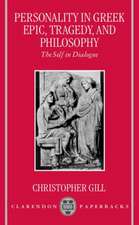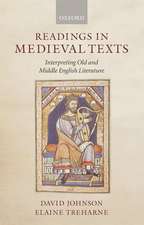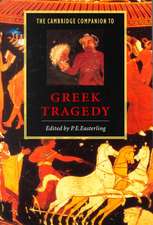Remembering Boethius: Writing Aristocratic Identity in Late Medieval French and English Literatures
Autor Elizabeth Elliotten Limba Engleză Hardback – 14 noi 2012
| Toate formatele și edițiile | Preț | Express |
|---|---|---|
| Paperback (1) | 80.07 lei 6-8 săpt. | |
| Taylor & Francis – 22 mai 2017 | 80.07 lei 6-8 săpt. | |
| Hardback (1) | 246.49 lei 6-8 săpt. | |
| Taylor & Francis – 14 noi 2012 | 246.49 lei 6-8 săpt. |
Preț: 246.49 lei
Preț vechi: 295.87 lei
-17% Nou
Puncte Express: 370
Preț estimativ în valută:
47.16€ • 49.24$ • 39.04£
47.16€ • 49.24$ • 39.04£
Carte tipărită la comandă
Livrare economică 04-18 aprilie
Preluare comenzi: 021 569.72.76
Specificații
ISBN-13: 9781409424185
ISBN-10: 1409424189
Pagini: 178
Dimensiuni: 156 x 234 mm
Greutate: 0.41 kg
Ediția:1
Editura: Taylor & Francis
Colecția Routledge
Locul publicării:Oxford, United Kingdom
ISBN-10: 1409424189
Pagini: 178
Dimensiuni: 156 x 234 mm
Greutate: 0.41 kg
Ediția:1
Editura: Taylor & Francis
Colecția Routledge
Locul publicării:Oxford, United Kingdom
Notă biografică
Elizabeth Elliott is a lecturer at the University of Aberdeen, UK.
Recenzii
'Elizabeth Elliott treats a number of subjects - Boethius, Boethius's "fortune" in the later Middle Ages, memory, life-writing, prison literature, advice to princes - in a deft and sophisticated manner. Engaging with Boethius, a philosopher, she deals with complex philosophical questions, and she insists upon the serious, intellectual component in texts which, up to now, were considered largely to be works of aristocratic and aesthetic play.' William Calin, University of Florida, USA and author of The French Tradition and the Literature of Medieval England 'This study is a fine contribution to recent scholarship on the influence of medieval translations of Boethian models. With its emphasis on memory as a means of consolation and also ethical perfection, the study sheds new light on the erotic imagery so striking in the works analysed, making a strong case for a moral significance that contradicts the intention traditionally attributed to Boethius. Moreover, by insisting on the political and ethical significance of such amatory writings, the study opens up new paths to explore.' Parergon 'Elliot offers new and exciting discussions of late medieval literary uses of Boethius as evidence of the emergence of vernacular authorship as well as the conscious representation of aristocratic identity in literature.' Comitatus
Cuprins
Introduction; Chapter 1 Boethian Counsel: Guillaume de Machaut's Confort d'ami; Chapter 2 Consolatory Vision: Translating Boethius in Guillaume de Machaut's Remede de Fortune; Chapter 3 Boethian Discipline: Desire and Restraint in Guillaume de Machaut's Fonteinne amoureuse; Chapter 4 Memory, Desire and Writing in Jean Froissart's Prison amoureuse; Chapter 5 Redeeming Memory: Thomas Usk's Testament of Love; Chapter 6 Textual Authority and the Making of a Model Prince: James I of Scotland and The Kingis Quair; conclusion Conclusion;
Descriere
Remembering Boethius explores the rich intersection between the reception of Boethius's Consolation of Philosophy and the literary construction of aristocratic identity. Elliott presents new interpretations of Machaut's Confort d'ami, Remede de Fortune and Fonteinne amoureuse, Froissart's Prison amoureuse, Thomas Usk's Testament of Love and the Kingis Quair. In asking how and why medieval writers remember Boethius, this book sheds new light on how medieval people imagined, and reimagined themselves.














